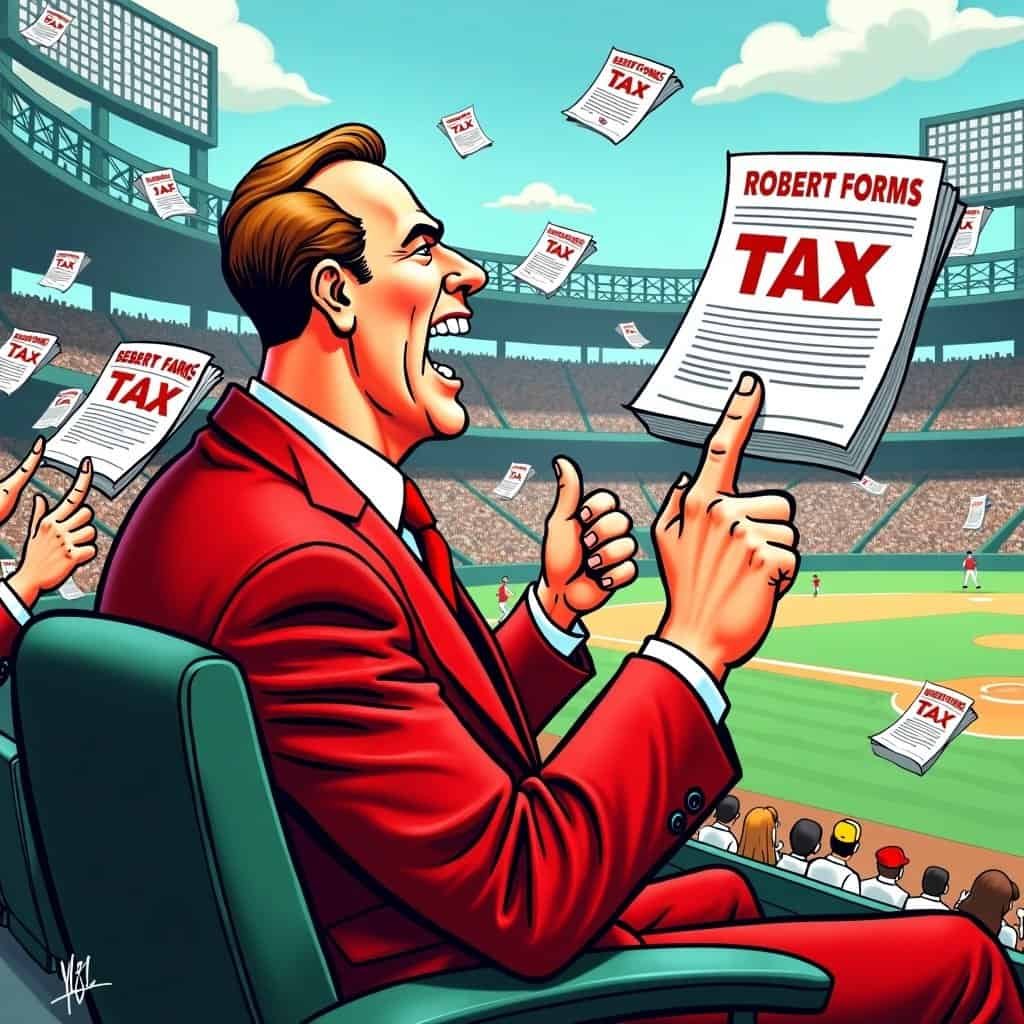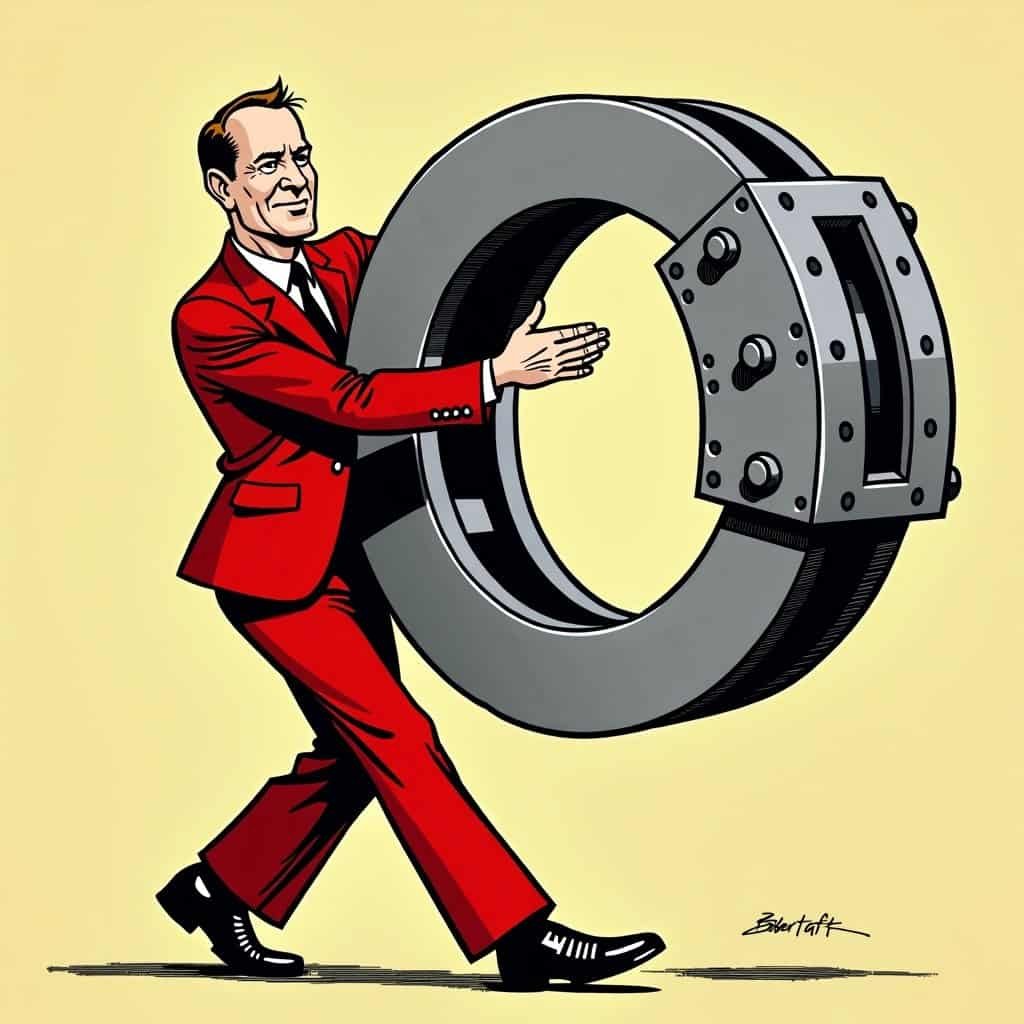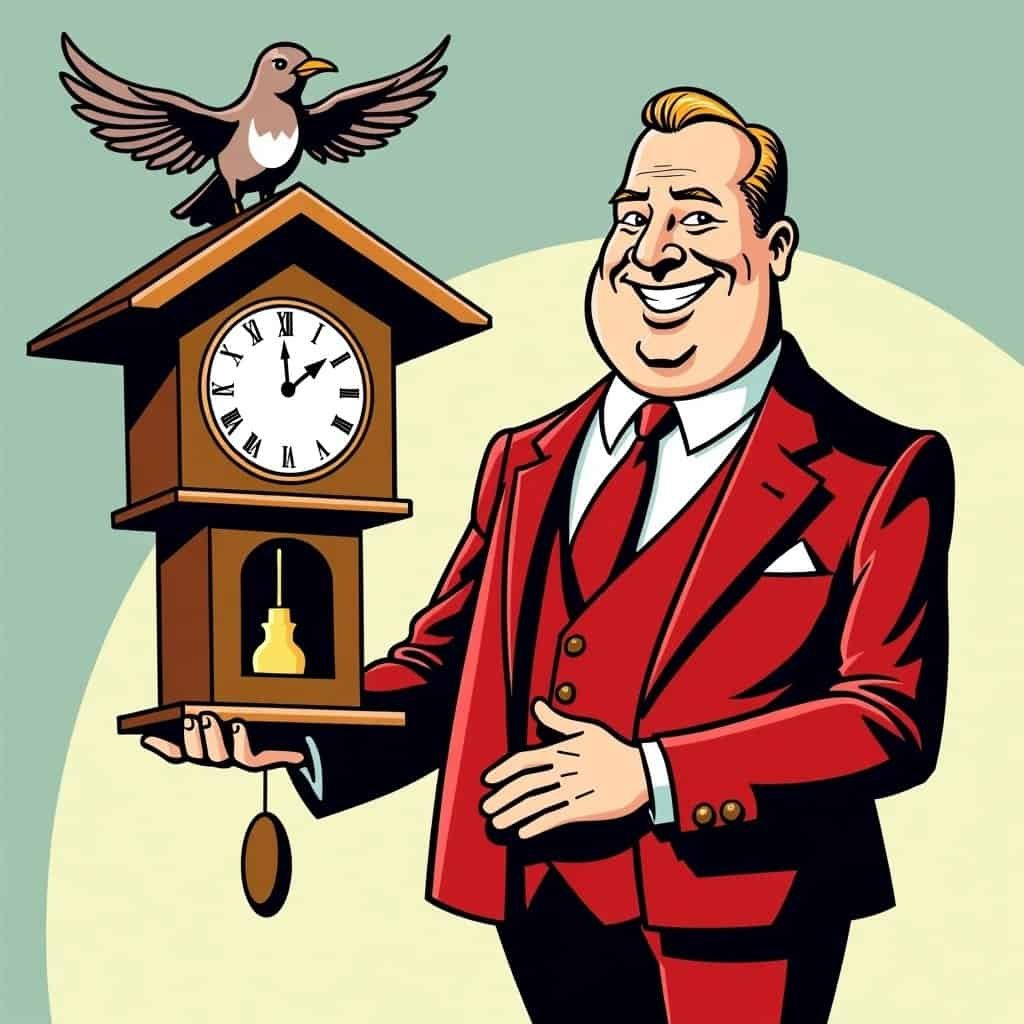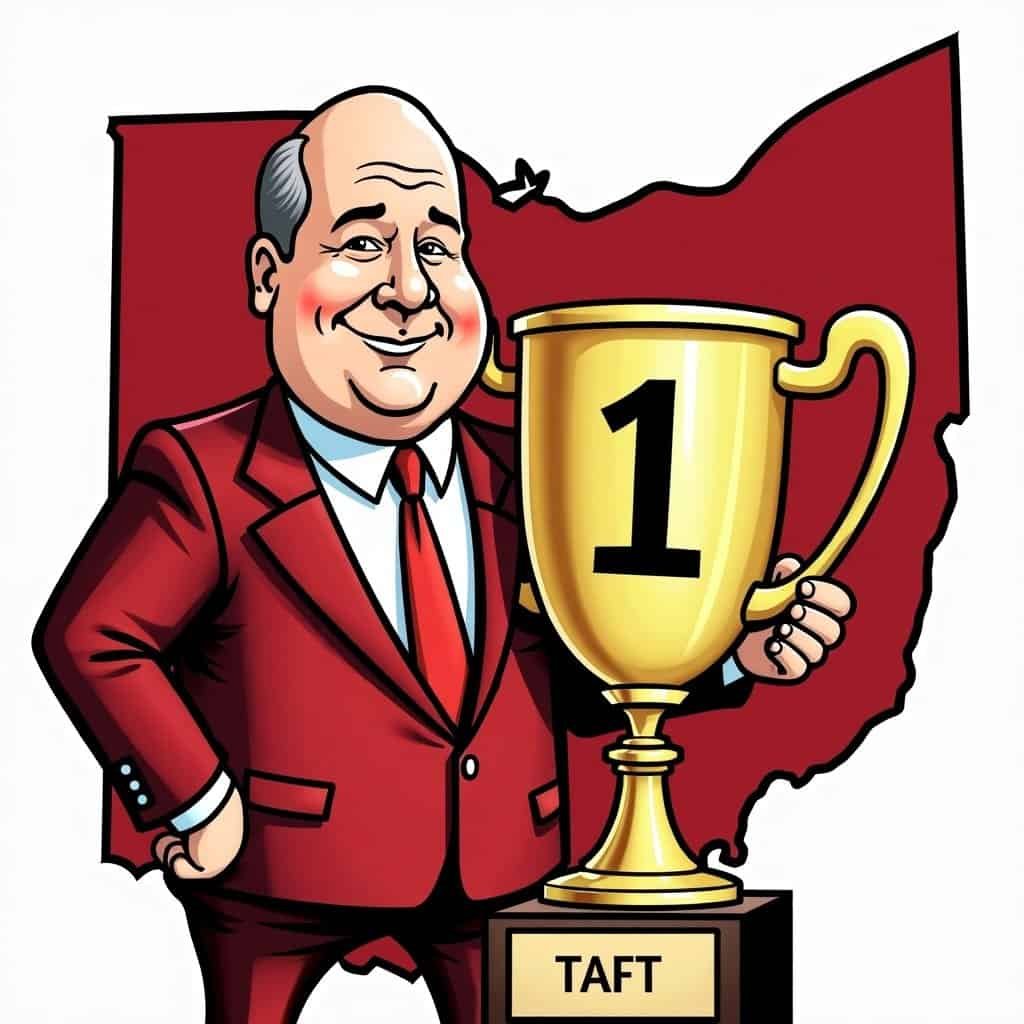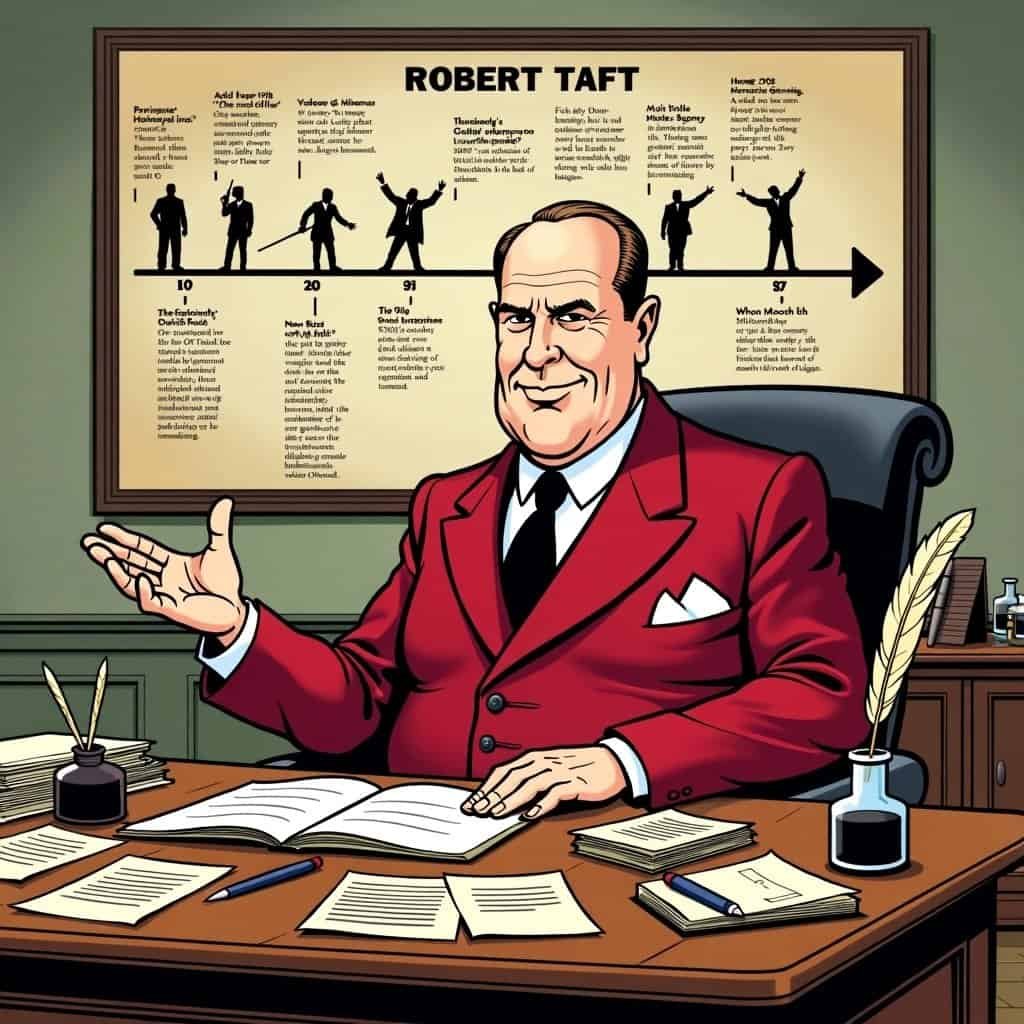Ah, Robert Taft—often called ‘Mr. Republican’—would probably shake his head at the tax circus we’ve created with today’s progressive tax system. If history gave out trophies for economic thinking, Taft would be on the podium for his unwavering support of conservative values—you know, those principles that remind us why homemade lemonade tastes best! So, grab some snacks, straighten your policy tie, and get ready to chuckle (or groan) as we take a swing at progressive taxation’s downsides, using Taft’s conservative playbook as our guide.
The ‘Robin Hood’ Approach: Income Redistribution
First off, let’s look at ‘income redistribution,’ a favorite tune of the left. They seem to think money grows on trees! Progressive taxation aims to take more from the high earners (you know—the ones fueling our economy) and spread it around. It’s like those ‘share my lunch’ playground rules all over again. But surely, cranking up taxes on the movers and shakers is the secret sauce for prosperity, right?
When the Taxman Cometh: Effects on Economic Growth
Now for the heart of conservative criticism: how these taxes put the brakes on economic growth. Picture this: You’re running a business, relying on profits and smart investments. Then Uncle Sam shows up, helping himself to a big slice because someone’s got to ‘share the wealth.’ These hard facts can leave our economy as flat as day-old soda. Less money for businesses means less reinvestment, slower innovation, and—you guessed it—fewer jobs. It’s Economics 101, folks! It’s like trying to bake Grandma’s famous cookies without the secret ingredient.
Impact of Progressive Taxation on Business Growth
Big Government’s Appetite: Fueling Programs with Taxes
While the left pours money into hefty government programs, conservatives—like our buddy Robert Taft—prefer to keep the keys to prosperity in capable hands… literally. The idea is simple yet apparently mind-boggling: Lower taxes on businesses pave the way for investments, which means more jobs and fatter paychecks. You know, that whole ‘rising tide lifts all boats’ thing! While progressives are busy ‘rescuing’ the economy with higher taxes, the result looks about as promising as putting together a 1000-piece puzzle in the dark.
Freedom’s Price Tag: The Cost to Capitalist Values
Progressives might call it fairness, but around here, we call it a punch to our cherished capitalist values. Why punish ambition and encourage dependency? Taft knew what made America tick: personal responsibility, elbow grease, and the beautiful dance of risk and reward that markets do so well without government stepping on toes. Yet, the progressive tax system keeps on trucking, insisting it’s doing good while leaving behind a trail of grumbling taxpayers like streamers after a party no one wanted.
A Helping Hand, Not a Handout
Now, we’re not saying slam the door on folks who need a boost. It’s about creating support systems that don’t snuff out the spark of innovation. Taft got this, valuing programs that helped people stand on their own two feet—programs funded by thriving economies, not shrinking ones.
The Taft Test: Would He Approve?
In the end, while the progressive dream paints pretty pictures of equality, the reality often rains on the parade of private enterprise and self-reliance. Robert Taft would tip his hat to how conservatives today still champion strategies that help people thrive, not just survive.
So next time you hear about another round of ‘tax the rich and spread the wealth,’ ask yourself: Would Taft have given a standing ovation, or just raised an eyebrow and said, ‘Good luck with that!’?
Table of Contents
- The ‘Robin Hood’ Approach: Income Redistribution
- When the Taxman Cometh: Effects on Economic Growth
- Big Government’s Appetite: Fueling Programs with Taxes
- Freedom’s Price Tag: The Cost to Capitalist Values
- A Helping Hand, Not a Handout
- The Taft Test: Would He Approve?
